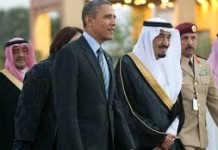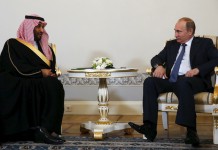Context
Introduction

The Pew Research Center’s Global Attitude Project recently released the findings of its 2010 survey on the attitude of Pakistani public on extremism and terrorism. The study was conducted in April of 2010, questioning thousands of respondents across the country. In the aftermath of the catastrophic floods in Pakistan, this survey could become a critical baseline to measure the public attitudes on extremism before and after the devastating floods. However, it should be pointed out that the study was mainly designed to gauge Pakistan’s public opinion particularly from the vantage point of United States. The survey, for example, does not cover public attitudes on the causes of religious extremism in Pakistan.
The Pew Research Centre’s Global Attitude Project recently released the findings of its 2010 survey on the attitude of Pakistani public on extremism and terrorism. The survey also covers people’s perceptions on Pakistan’s economic condition and foreign relations, particularly with the US. The survey was conducted in April of 2010, questioning thousands of respondents across the country.
The study provides insight into the evolving perceptions that ordinary Pakistanis hold regarding extremist and terrorist organizations. Moreover, the results of the investigation clearly convey that when it comes to the fight against militant organizations, the government of Pakistan is failing in the most important battlefield of all: the hearts and minds of Pakistani people. In the aftermath of the catastrophic floods in Pakistan, this survey could become a critical baseline to measure the public attitudes before and after the devastating floods.
Although surveys cannot be termed as exact representation of reality they do provide significant insight into prevalent attitudes that exist in the social setting where they are carried out. The Global Attitude Project surveys in Pakistan are generally reflective of the divergent public perception on Taliban and Al Qaeda as well as religious extremism and terrorism in the country.
Analysis
Perceptions of the Pakistani Public on Religious Extremism
Will Extremist Take Over Pakistan?

One of the most important questions of the survey covers whether the respondents were worried about extremist groups taking control of Pakistan. In response to this question 51 percent said that they were quite worried about the unfolding of such a scenario; 31 percent of the people surveyed said that they were not very worried, or not at all worried about extremists taking over of the country. If 51 percent of the respondents-a representative sample of Pakistani population-think that militants could take over Pakistan, it reflects on the low level of confidence the people have in the capability of the state and its apparatus to prevent such an eventuality. An alarming 84 percent of the respondents were unhappy about the state of affairs in Pakistan.
Views on Al Qaeda
The second important question of the survey relates to public’s view on Al Qaeda. As compared to 63 percent last year, 53 percent of the survey respondents had negative attitudes towards Al Qaeda this year. This represents a decrease of 10% from last year.
The somewhat favorable attitude of Pakistanis towards Al Qaeda is an indication of the failure of nations media as well as state agencies in building a case against the extremists and Al Qaeda. This may also be reflective of the backlash against Pakistan’s continued cooperation with the US in the fight against terror. Many Pakistanis equate the war against terror with more drone attacks, which occur with Pakistani acquiescence and are believed to cause civilian causalities.
Views on Pakistani Taliban

As far as the views about the Taliban are concerned, 65 percent of the respondents had unfavorable views while only 15 percent had a positive attitude. In comparison, last year 70 percent held negative views on Taliban while 10 percent had a sympathetic opinion.
Increase in the favorable attitudes towards Taliban is alarming considering they have continued their devastating attacks in Pakistan, bringing death and destruction to ordinary Pakistan citizens across the country. Furthermore, the fact that the Taliban have a political agenda for the whole state of Pakistan, which ultimately focuses on the imposition of their version of ‘Islamic’ system in the country, increasing favorable attitudes towards Taliban should be a cause of serious concern.
Views on Lashkar-e-Tayyaba (LeT)
Questions measuring public attitudes on LeT were added to the survey for the first time this year: confirming the rise of danger posed by the group on the American radar while also reflecting Indian pressure and influence on US policy. In response to the question about LeT, 25 percent of people responded favorably and 35 percent unfavorably when questioned. On the other hand, 40 percent were not familiar with the existence of the group. As no comparison point exist, it is difficult to draw any conclusions. However, it does appear that popularity of the group is concentrated in particular parts of the country. With 40 percent of the respondents not recognizing LeT could be interpreted to mean that the group is not believed to pose a threat to Pakistan, which could translate into more public and financial support.
Greatest Threat to Pakistan
Yet another important question of the survey asked about the greatest threat to Pakistan. Not to anyone’s surprise, 53 percent of Pakistanis view India as the biggest threat. On the other hand 23 percent considered Taliban the greatest risk and a negligible 3 percent thought Al Qaeda to be the acute hazard for the country. Interestingly 5 percent named all the three of the above as the biggest threat. On the other hand, 6 percent thought none of above posed a serious threat.
The above data clearly demonstrates the majority of Pakistani’s still consider India to be its archenemy. This is despite the recent official rhetoric that the main threat to the state comes from within. Many Pakistan’s believe the Taliban and the insurgency in Balochistan are supported by India, which in collusion with Afghanistan are attempting to destabilize Pakistan. Moreover, the survey results highlight the fact that when it comes to the strategic threat perception of the country, the danger from India continues to supersede any risk posed by local militant and extremist groups.
Perceptions of Pakistani Political Leadership and Media on the Causes of Extremism
 It should be also be pointed out that the survey is mainly designed to gauge Pakistan’s public opinion and its implication for US policies in the region. The survey, for example, does not cover the public perception on the causes of extremism in Pakistan, which tremendously impacts its effort to formulate a response to the fight against terrorism.
It should be also be pointed out that the survey is mainly designed to gauge Pakistan’s public opinion and its implication for US policies in the region. The survey, for example, does not cover the public perception on the causes of extremism in Pakistan, which tremendously impacts its effort to formulate a response to the fight against terrorism.
This is where PoliTact has focused its attention for the last two years in a row. PoliTact has taken upon a longitudinal study to study the perspectives of a whole array of Pakistanis on the causes of present predicament of Pakistan. As part of this examination, PoliTact teamed up with APPJD (American Pakistani Physicians for Justice and Democracy). APPJD uses ‘discussion forums’ to build a basic framework around which political thought process and consensus building can be developed. In July 2009, PoliTact analyzed the views of the major political parties of Pakistan. This year another panel discussion was organized by APPJD on July 4, 2010 to discuss the role of media in-fighting extremism.
Up to now what has been observed in our study is the inability on the part of the country’s civil, political, and military intelligentsia to develop a consensus on not only who the enemy is, but also what are the roles of different institutions of Pakistan to fight this menace. Most of the focus usually revolves around: 1) the basic causes of extremism in Pakistan; 2) ethnic tensions; 3) the role of the Pakistani Army; 4) rampant corruption of the politicians; and 5) military or political solution.
Pakistan’s different institutions pay more emphasis on the present geopolitical and religious factors as opposed to understanding the current crises in the context of economic, social, cultural and historical underpinnings. They approach the problem as being linear and fail to take in to account the interconnection of the above listed variables, which requires taking a multidimensional view of the reality being confronted.
Conclusion
PoliTact has previously pointed out the key impediments in carrying out successful transformation in an organization. These according to a well known organizational transformational doctrine called the Blue Ocean strategy are; resources, cognitive, political and motivational. The authors of the strategy W. Chan Kim and Renee Mauborgne, claim the hardest challenge for a leader to bring about transformation is cognitive i.e., “…. to make people aware of the need for a strategic shift and to agree on its causes.”
While Pakistani public, intelligentsia, political and military leadership realizes the need and urgency for a strategic shift to tackle the multitude of challenges confronted by the country, they do not agree on the causes of the problems. As referenced above, without agreement on the causes and merely examining the attitudes of the people on extremism, is not going to assist in tackling the gradual radicalization of the Pakistani society and bring about a change.
This is where surveys conducted by Pew Research Center are most lacking, as they study the attitudes but not the causes behind the attitudes. On the other hand, as mentioned above, Pakistanis have focused most of their discussions on the causes of extremism.
PoliTact has highlighted the role of media in helping to build consensus and educating the masses on the causes of religious extremism in Pakistan, as majority of the political leadership lacks credibility in the public eye while the military leadership can often be myopic in its strategic outlook. We will continue to analyze the attitudes and perceptions of Pakistani pubic, leadership and institutions and examine not only the outcomes but also the possible causes for increasing religious extremism.



